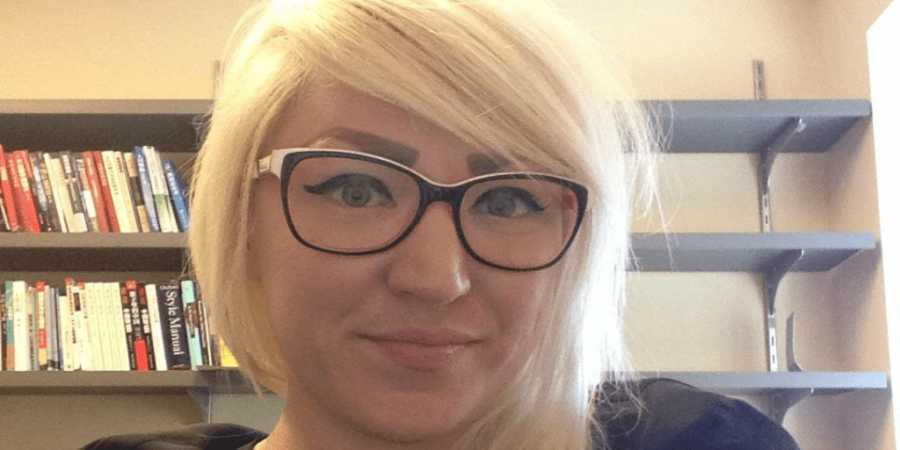The spirit and the letter of Islamic law prohibit acts of relationship violence. Are we willing to hold our brothers, fathers, and sons accountable for domestic violence at work, at home, and at the mosque?
I sat horrified two weeks ago as I watched the first reports of the gruesome murder of Aasiya Hassan, the general manager of the Muslim-interest television channel BridgesTV. The allegations that her husband killed her in a most extreme form of domestic violence shook me to the core. This crime and the ensuing vilification of Muslims are both affronts to all the work I have done with others to promote interfaith dialogue and to prevent violence against women.
Regarding domestic violence, I assert that the spirit and the letter of Islamic law prohibit acts of relationship violence. However, the two sides receiving the most attention on the issue consist of first, oversimplified apologetics, and second, Islamophobic attacks on the integrity of Muslim men. The back and forth between these two perspectives on the “Islamic-ness” of this sort of violence takes us away from what should be our focus: to address domestic violence in the Muslim community today, and to sound a clarion call for Muslim men in particular to step up their efforts.
To single out Islam and its adherents is at best a diversionary tactic. The apologist voice implores us to look to the past at the improvement of women's status in Islamic history, rather than focusing our attention on current gender violence issues that are real and present. The Islamophobic voice asks us to invalidate a faith and religious community because of the individual atrocities committed by certain Muslims. However, I continue to find examples of positive gender dynamics in the Muslim community, as well as a potential for addressing domestic violence from within the community.
When looking for a relatively recent, nuanced, and thoughtful piece on the topic of domestic abuse in the American Muslim community, I came across a New York Times article from January 2008. Some impactful individuals and organizations are mentioned in the article: one is the Hamdard Center, a Chicago women's shelter focusing on the needs of battered Muslim women; another was The Peaceful Families Project, an organization that is conducting research on and raising awareness of domestic violence amongst American Muslims and Maha Al-Khateeb, the organization's co-director. In this article and many others, the efforts of women in the community are rightly highlighted, but the omission of men's efforts implies a general apathy on our part. Muslim men are not monolithic, and we should be allowed to speak for ourselves. Many of us are allies for women in varying capacities: as counselors, employees at women's services organizations, as law enforcement officers, and more broadly as concerned members of the community.
Large populations of Muslim men advocating against domestic violence have yet to emerge, and while I believe that we have not reached the critical mass of allies that would give us public exposure, many of us are channeling our indignation at the scourge of spousal assault and abuse. From the most conservative traditionalists to Muslim pro-feminists, all along the spectrum there is a growing men's acknowledgment of the corrosive effects of this violence on our communities.
The reaction by male leaders in the community to the Hassan murder is noteworthy. Imam Mohamed Magid, the Vice-President of the Islamic Society of North America, issued a statement in which he frankly remarked, “Unfortunately, some of us ignore such problems in our community, wanting to think that it does not occur among Muslims or we downgrade its seriousness…” This honest appraisal of community attitudes is a necessary foundation for furthering the efforts of Muslim men and women in making domestic violence unacceptable.
Domestic violence is a complex issue to address precisely because it is so widespread and cuts across many demographic lines. In the American Muslim community in particular, we need real, sustained action and a continued buy-in. This means three things: continuing to address domestic violence issues long after the buzz from the story of Aasiya Hassan's murder has quieted down; an ongoing commitment from imams in particular to support and provide resources for both the victims of domestic violence and the broader Muslim community; and more visible men's anti-violence initiatives. Having these three action items on the agenda will be far more effective than getting mired in political debate.
Whether physical, sexual, or psychological in nature, chances are extremely high that each of us knows a victim of domestic violence. Ultimately the question becomes how accountable we are willing to hold our brothers, fathers, and sons, and what we are willing to take a stand against at work, at home, and at the mosque.
This piece was originally published on March 1, 2009 as a guest contribution to The Faith Divide, a blog written by Dr. Eboo Patel on The Washington Post and Newsweek's “On Faith” forum, a conversation on religion.
Abbas Jaffer is an associate editor of Altmuslimah.



